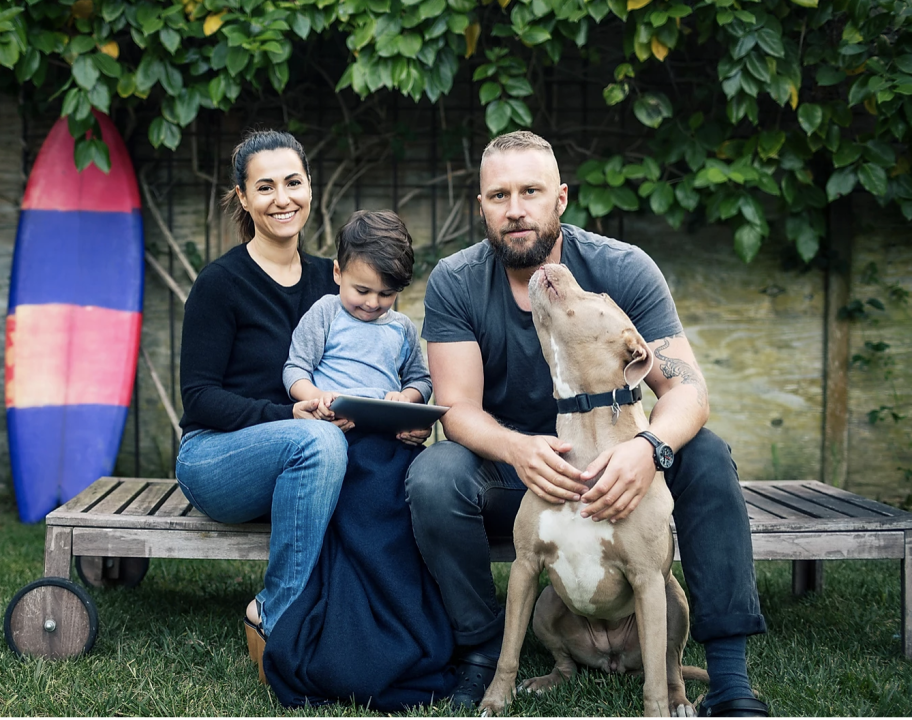Why Co-Parenting With a Non-Biological Parent Works?
Co-parenting with a non-biological parent works because it brings diverse perspectives and shared responsibilities that benefit your children and family. The unique backgrounds create a well-rounded parenting approach. Building a strong support network fosters trust and unity. Positive communication enhances emotional well-being and child development. Effective strategies like active listening and shared financial responsibilities guarantee a nurturing environment. Embracing these aspects enriches family dynamics and strengthens relationships.
Key Takeaways
- Diverse perspectives enrich parenting approaches and children’s development.
- Strong support networks build trust, unity, and shared responsibilities.
- Enhanced emotional wellbeing through positive communication and mutual respect.
- Improved child development with additional caregivers and diverse perspectives.
- Emotional resilience and stability nurtured by both biological and non-biological parents.
Diverse Parenting Perspectives

Considering the unique backgrounds and experiences of co-parents, diverse parenting perspectives play a significant role in shaping the dynamics of raising children together. In blended families, the negotiation of different parenting styles can create a rich tapestry of alternative viewpoints that contribute to the children’s development. This blend of perspectives can offer a broader spectrum of approaches to modern parenting challenges, enriching the child-rearing experience.
The unique dynamics within co-parenting relationships can be both challenging and rewarding. Maneuvering through differing opinions on discipline, education, and other aspects of parenting requires open communication and a willingness to compromise. Embracing the diverse parenting perspectives within a co-parenting setup can lead to a more holistic and well-rounded approach to raising children.
Strong Support Networks

Establishing a robust support network is essential in co-parenting with a non-biological parent.
Shared responsibilities not only help build trust but also create a sense of unity within the family dynamic.
Open communication and mutual respect further enhance cooperation, laying a solid foundation for successful co-parenting.
Shared Responsibilities Build Trust
By actively sharing responsibilities in co-parenting with a non-biological parent, you can foster a strong foundation of trust within your support network. Trust building is an essential aspect of any successful co-parenting relationship, and one effective way to nurture this trust is through shared duties. When both you and the non-biological parent equally participate in tasks such as school pickups, doctor’s appointments, or everyday care activities, it demonstrates a mutual commitment to the well-being of your child.
Research shows that shared responsibilities not only lighten the load for both parties but also create a sense of partnership and reliability.
Through the shared duties in co-parenting, you not only show your child the importance of cooperation and teamwork but also strengthen the bond between all members of the support network. Trust is built on consistent actions, and by consistently sharing responsibilities, you’re actively contributing to a harmonious and trusting co-parenting dynamic.
Open Communication Fosters Unity
Effective communication is the linchpin of fostering unity within strong support networks in co-parenting with a non-biological parent. By engaging in effective listening and embracing shared decision making, you can build a solid foundation for successful co-parenting.
When you actively listen to each other’s perspectives and concerns, you create a space where both parties feel valued and understood. This open line of communication allows you to collaborate on important decisions regarding your children’s upbringing, leading to a more cohesive co-parenting relationship.
Shared decision making is vital in ensuring that both you and the non-biological parent have a voice in shaping your children’s lives. By openly discussing and jointly deciding on matters such as education, healthcare, and discipline, you demonstrate a commitment to working together for the well-being of your children.
Mutual Respect Enhances Cooperation
Fostering mutual respect between you and the non-biological parent is key to enhancing cooperation within your strong support network in co-parenting. Respectful collaboration and effective teamwork are essential in building a foundation of trust and understanding. By valuing each other’s perspectives and contributions, you can create a harmonious co-parenting dynamic that benefits everyone involved.
In cooperative co-parenting, mutual respect plays a crucial role in handling challenges and making joint decisions for the well-being of your children. When both parties approach situations with respect and empathy, it fosters a sense of unity and shared responsibility. This leads to smoother communication and more productive problem-solving.
Research shows that co-parents who prioritize mutual respect tend to have healthier relationships and higher levels of satisfaction in their co-parenting arrangement. By actively practicing respect and appreciation for each other’s roles, you can create a supportive environment where everyone feels valued and understood. Embracing mutual respect not only enhances cooperation but also strengthens the bond within your co-parenting team.
Enhanced Emotional Wellbeing
Maintaining a positive and open line of communication with the non-biological parent can greatly contribute to your enhanced emotional wellbeing as you navigate co-parenting together. Research suggests that strong family dynamics and good mental health are closely linked to effective co-parenting arrangements. By fostering understanding and empathy in your co-parenting relationship, you create a supportive environment that benefits not only your children but also yourself.
When you prioritize clear and respectful communication with the non-biological parent, it can lead to a reduction in stress and anxiety levels. Sharing parental responsibilities and decision-making with openness and cooperation can provide a sense of shared burden and increase feelings of support.
This collaborative approach can help you feel less isolated in the challenges of parenting, ultimately leading to improved emotional health and overall wellbeing.
Improved Child Development

As you co-parent with a non-biological parent, remember that this relationship can greatly benefit your child’s development. By having additional caregivers who provide love and support, your child can develop enhanced social skills and a stable emotional foundation.
Research shows that children raised in such environments often exhibit greater resilience and emotional intelligence.
Enhanced Social Skills
By co-parenting with a non-biological parent, you can greatly contribute to enhancing your child’s social skills and overall development. Social interaction plays an essential role in a child’s growth, and having a diverse range of relationships shapes their understanding of the world.
When a non-biological parent is involved, your child benefits from exposure to different perspectives, communication styles, and problem-solving approaches. This exposure fosters adaptability and empathy, essential components of emotional intelligence.
Through interactions with a non-biological parent, your child learns to navigate various social dynamics, which can lead to improved conflict resolution skills and enhanced cooperation abilities. These experiences help in building strong interpersonal relationships and developing a sense of community.
Additionally, having a supportive non-biological parent can provide your child with additional emotional support and guidance, contributing to their overall emotional well-being.
In essence, co-parenting with a non-biological parent enriches your child’s social skills by offering diverse social interactions and nurturing their emotional intelligence, ultimately leading to a more well-rounded and socially adept individual.
Stable Emotional Foundation
Establishing a stable emotional foundation through co-parenting with a non-biological parent is vital for fostering improved child development. Children thrive when they feel emotionally secure, and this security is deeply rooted in stability and emotional support provided by cooperative parenting.
Research indicates that children who experience stable emotional foundations through co-parenting show enhanced cognitive abilities, better social skills, and improved overall well-being. When a child feels supported by both biological and non-biological parents, they develop a sense of trust and belonging that positively impacts their emotional resilience.
Emotional stability is essential for children to navigate the complexities of life confidently. Co-parenting with a non-biological parent can offer additional layers of emotional support, reinforcing the child’s sense of security and self-worth.
Effective Communication Strategies
How can you effectively communicate with a non-biological parent when co-parenting?
Active listening plays a vital role in fostering understanding and respect in your co-parenting relationship. When engaging in discussions with the non-biological parent, make sure to give them your full attention, listen attentively to their perspective, and validate their feelings. By actively listening, you show that you value their input and are willing to work together to find solutions.
Conflict resolution is another key aspect of effective communication with a non-biological parent. When conflicts arise, approach them with an open mind and a willingness to compromise. Focus on finding common ground and mutually beneficial solutions rather than escalating disagreements. Effective communication involves expressing your thoughts and emotions honestly while also being receptive to the non-biological parent’s viewpoints.
Shared Financial Responsibilities

Effectively managing shared financial responsibilities is vital in co-parenting with a non-biological parent to safeguard the well-being of your child and maintain a collaborative relationship. Ensuring financial stability through cooperative parenting can create a strong foundation for your child’s future. Shared expenses and joint finances require open communication and transparency to avoid misunderstandings and conflicts. Setting a clear budget and discussing financial goals together can help in making informed decisions about how best to allocate resources for your child’s needs.
In co-parenting with a non-biological parent, it’s essential to work together to prioritize your child’s financial well-being. By sharing the financial responsibilities, you can provide a sense of security and consistency for your child. This collaborative approach not only benefits your child but also fosters a positive co-parenting relationship based on trust and mutual respect.
Frequently Asked Questions
Can Co-Parenting With a Non-Biological Parent Create Confusion for the Child?
From a child’s perspective, co-parenting with a non-biological parent can cause confusion. The emotional impact may affect identity formation and family dynamics. It is essential to navigate these complexities with empathy, communication, and support.
How Can Non-Biological Parents Establish Authority and Boundaries?
To establish boundaries, communicate openly with your child, set clear expectations, and follow through consistently. Building trust takes time, so be patient, show love, and respect their feelings. Your role is crucial in creating a stable environment.
What Are Some Challenges Faced in Establishing a Co-Parenting Relationship?
You might face communication struggles and emotional hurdles in establishing a co-parenting relationship. Trust issues and an adjustment period are common challenges. Remember, open dialogue, empathy, and patience can help navigate these difficulties together.
Is It Possible for Conflicts Between Co-Parents to Negatively Impact the Child?
Conflicts between co-parents can negatively impact the child’s well-being. Effective conflict resolution, communication, and parental unity are essential. Prioritize the child’s emotional stability by fostering a harmonious co-parenting relationship, benefitting their overall development and happiness.
How Can Non-Biological Parents Navigate Their Role in the Child’s Life Effectively?
Managing your role as a non-biological parent entails establishing trust through consistent involvement and communication. Building rapport with the child is key – be present, listen, and show genuine care to foster a positive relationship.
Conclusion
To sum up, co-parenting with a non-biological parent can bring numerous benefits to both you and your child. From diverse parenting perspectives to enhanced emotional wellbeing, effective communication strategies to shared financial responsibilities, the advantages are clear.
By working together as a team and building a strong support network, you can create a nurturing and loving environment for your child to thrive. Trust in the process and embrace the journey of co-parenting for a brighter future ahead.

Chad Adan Kace, a young dad from Vermont, shares his parenting journey with a touch of humor and lots of love. Father to a lively baby, he explores the joys and challenges of fatherhood through his stories.







